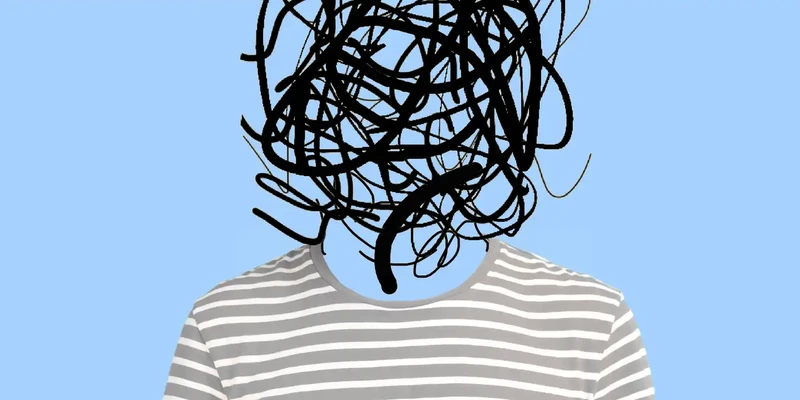
Table of Contents
- Mental Health Rehab Options in Los Angeles
- What to Expect from Mental Health Rehab
- Addressing Co-Occurring Disorders Dual Diagnosis Care
- Short-Term vs. Long-Term Mental Health Rehab
- How to Get Admitted into a Mental Health Rehab in LA
- Does Insurance Cover Mental Health Rehab in LA?
- Inclusive Mental Health Programs for LGBTQ+ in LA
- Explore Mental Health Rehab Locations Across LA

If you’re wondering, “Are there rehabs for mental health in Los Angeles?”—the answer is yes. Los Angeles is home to a wide variety of mental health treatment centers that support individuals dealing with depression, anxiety, bipolar disorder, schizophrenia, and other mental health disorders. Whether you’re looking for inpatient care for stabilization or holistic outpatient support, the city offers diverse programs designed to understand rehab options in LA.
This guide will walk you through the types of mental illness rehab options available in LA, what to expect during treatment, and how to find an approach that matches your needs. We’ll also cover dual diagnosis care for those facing both substance use and mental health concerns, inclusive programming like LGBTQ+ services, and how insurance and payment factors into accessing care. No matter where you’re starting from, you’ll find compassionate, evidence-based paths toward better mental health in Los Angeles.
Mental Health Rehab Options in Los Angeles
Los Angeles offers a wide range of mental health rehab options designed to fit varying levels of need, lifestyles, and recovery goals. Whether you’re seeking full-time residential care or a flexible outpatient schedule, the city provides access to specialized treatment plans that address anxiety, depression, mood disorders, and more.
Inpatient Mental Health Care in Los Angeles
Inpatient Treatment in LA offers structured, 24/7 support in a residential setting. This type of rehab is often ideal for individuals experiencing severe or acute mental health challenges who need intensive therapy and medical oversight. Length of stay may vary, but programs often start at 30 days and can extend depending on individual progress. Treatment typically includes individual counseling, group therapy sessions, and therapeutic activities in a controlled environment.
Outpatient Mental Health Programs in LA
Flexible Outpatient Options allow individuals to receive consistent mental health treatment while continuing to live at home. These programs are well-suited for those transitioning from inpatient care or managing mild to moderate symptoms. Sessions may occur several times per week and include therapy, medication management, and support groups. Outpatient rehab supports long-term recovery by promoting balance between treatment and everyday responsibilities.

What to Expect from Mental Health Rehab
Mental health rehab in Los Angeles typically offers structured, supportive environments designed to help individuals better manage mental health disorders. Depending on the program—residential inpatient care or outpatient services—a person’s daily routine may include individual therapy, group sessions, medication management, and time for physical wellness and skill-building. Each day is meant to create consistency and foster a safe space for recovery.
CBT for Mental Health Support in LA
Cognitive Behavioral Therapy (CBT) is a widely used approach in many Los Angeles rehab centers. This evidence-based treatment helps individuals recognize and reframe negative thought patterns that contribute to conditions like depression, anxiety, and PTSD. Through regular CBT sessions, clients gain coping tools and learn healthier ways to respond to challenging emotions or situations.
DBT Applications in LA Mental Health Rehab
Dialectical Behavior Therapy (DBT), another common therapy in LA-based programs, focuses on improving emotion regulation, mindfulness, and interpersonal effectiveness. Originally developed for borderline personality disorder, DBT has since proven effective for a variety of mental illnesses, including mood and trauma-related disorders. Rehab centers often incorporate DBT skills training into individual and group therapy to help clients manage emotional distress safely and effectively.

Addressing Co-Occurring Disorders: Dual Diagnosis Care
For individuals facing both substance use issues and mental health disorders, dual diagnosis care offers an integrated treatment approach. This type of care is especially important because mental illness and addiction often influence one another, making recovery more complicated if treated separately. In Los Angeles, many mental health rehabs provide specialized dual diagnosis programs to support people with co-occurring conditions like depression and alcoholism or anxiety and stimulant misuse.
Dual diagnosis treatment typically includes a combination of psychiatric support, behavioral therapies such as CBT or DBT, medication management, and structured addiction recovery plans. Effective programs not only address the immediate symptoms of each condition but also help you develop long-term coping strategies to support ongoing recovery. Choosing a facility experienced in dual diagnosis is key to ensuring that both mental health and substance use disorders are treated with equal attention. This holistic approach can improve outcomes and reduce the chances of relapse for those navigating complex mental health needs.
Short-Term vs. Long-Term Mental Health Rehab
When exploring mental illness rehab options in Los Angeles, understanding the difference between short-term and long-term programs is essential. Short-term mental health rehab typically ranges from a few days to a few weeks. These programs are often intensive, focusing on crisis stabilization, medication management, and introducing essential coping skills like CBT therapy or DBT therapy.
Long-term rehab—lasting 30 days or more—delves deeper into the root causes of mental health disorders. These programs offer structured inpatient care or extended outpatient support and are especially beneficial for those with chronic conditions or co-occurring disorders such as dual diagnosis. Longer stays allow for sustained psychotherapy, lifestyle changes, and preparation for independent living.
Choosing between short- and long-term rehab depends on the severity of symptoms, presence of addiction, support systems, and personal recovery goals. Both approaches aim to support long-term healing and mental wellness in a city with diverse mental health resources.

How to Get Admitted into a Mental Health Rehab in LA
Starting the process of getting into a mental health rehab program in Los Angeles begins with an intake assessment. Most facilities offer a confidential screening—either over the phone or in person—to evaluate symptoms, mental health diagnoses, and any co-occurring substance use. This helps determine if inpatient care, outpatient programs, or specialized services like CBT therapy or DBT therapy are appropriate.
Following the initial screening, the facility will review insurance coverage or discuss self-payment options, including Medicaid for mental health needs. Once financial logistics are confirmed, the care team schedules admission, often within a few days for urgent cases. Bringing previous medical records or psychiatric evaluations can help speed up the process.
Whether you’re seeking support for depression recovery, dual diagnosis, or broader mental health disorders, early outreach leads to earlier support and stability.
Does Insurance Cover Mental Health Rehab in LA?
Yes, most mental health rehab programs in Los Angeles accept various forms of insurance, including private insurance, HMOs, PPOs, and public plans like Medicaid. The specific type of coverage and services covered can vary greatly between plans, so it’s important to verify benefits with your provider or the treatment facility.
Medicaid covers a range of mental health services in California, including therapy, medication management, and inpatient or outpatient care—often with little or no out-of-pocket cost. Some rehab centers are also able to assist you in determining your eligibility or navigating Medi-Cal mental health benefits.
Regardless of your insurance type, make sure to confirm if a program is in-network and whether services like CBT therapy, DBT therapy, or dual diagnosis treatment are covered, especially if you’re managing both substance use and mental health disorders.

Inclusive Mental Health Programs for LGBTQ+ in LA
For many LGBTQ+ individuals, finding a safe and affirming space within mental health treatment can make all the difference. In Los Angeles, a growing number of mental health rehab programs are designed specifically with LGBTQ+ needs in mind, offering care that respects and understands diverse identities and experiences.
These specialized programs may include trauma-informed care, culturally competent clinicians, and therapy focused on issues like identity development, family rejection, and minority stress. Whether you’re seeking inpatient care or outpatient support, LGBTQ+ rehab programs in LA emphasize inclusion, emotional safety, and long-term recovery strategies tailored to your lived reality. Choosing an affirming environment can help foster trust and lasting progress in managing mental health disorders.
Explore Mental Health Rehab Locations Across LA
Finding the right environment for mental health recovery is an important step toward healing. Whether you’re seeking inpatient care for a structured reset, outpatient programs that fit into daily life, or specialized support such as LGBTQ+ rehab programs and dual diagnosis facilities, Los Angeles offers a wide range of options.
Each rehab center varies in approach and care level—from facilities focusing on CBT or DBT therapy to those offering integrated treatment for mental health disorders. Use our local resources to compare locations and identify services that align with your needs, preferences, and insurance options, including those that accept Medicaid.
Frequently Asked Questions
Are there mental health-focused rehabs in Los Angeles?
Yes, Los Angeles has a wide range of rehab centers dedicated to mental health treatment. These facilities focus exclusively on mental health issues like depression, anxiety, bipolar disorder, and more, offering both inpatient and outpatient services depending on the severity of the condition.
What types of mental health disorders do LA rehabs treat?
Mental health rehabs in LA treat a broad spectrum of conditions. Common disorders include depression, anxiety disorders, PTSD, bipolar disorder, schizophrenia, and personality disorders. Some rehabs are equipped to handle more complex or chronic mental illnesses with integrated support systems and specialized therapies.
How do I enroll in a rehab for depression?
To enroll, you typically start with a phone or in-person assessment to determine your needs. Based on this evaluation, the rehab program will recommend an appropriate level of care—often inpatient or intensive outpatient—and help you with admissions and insurance verification.
Does insurance cover mental health rehab programs?
Most private insurance plans and public options like Medi-Cal (California’s Medicaid program) offer coverage for mental health rehab, especially if treatment is deemed medically necessary. Coverage details, however, vary, so it’s best to verify benefits with your insurer or a treatment center's admissions team.
What's the difference between inpatient and outpatient rehab?
Inpatient rehab involves staying at a facility full-time, offering immersive support, daily care, and structure. Outpatient rehab allows you to live at home while attending scheduled therapy sessions and support groups several times per week, typically suited for less severe conditions or people transitioning from inpatient care.
Which therapy approaches are used in LA mental rehabs?
Many facilities use evidence-based therapies such as Cognitive Behavioral Therapy (CBT), Dialectical Behavior Therapy (DBT), trauma-focused therapy, and group counseling. Holistic approaches like mindfulness, art therapy, and movement-based treatments are also common, depending on the center.
Are LGBTQ+-friendly mental health rehabs available?
Yes, several mental health rehab centers in the Los Angeles area prioritize inclusive care tailored to LGBTQ+ individuals. These programs provide a safe environment with culturally competent staff who understand the unique challenges faced by LGBTQ+ clients.
Can I use Medicaid at mental health rehabs in LA?
Many rehabs in Los Angeles accept Medicaid (Medi-Cal in California) for mental health treatment. However, coverage can vary based on the facility and the specific services offered, so it's helpful to confirm with the rehab directly.
What is dual diagnosis treatment?
Dual diagnosis treatment addresses both a mental health disorder and a co-occurring substance use disorder simultaneously. This integrated approach is crucial for long-term recovery because it treats interconnected issues rather than isolating one condition from the other.
How long do mental health rehab programs last?
Program lengths vary depending on individual needs and the level of care. Short-term programs may last 30 days, while long-term rehab could extend to 60, 90 days, or more. Some outpatient options offer flexible timelines that adjust based on progress and goals.








































